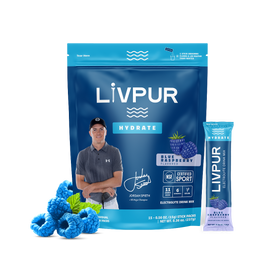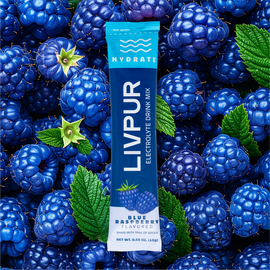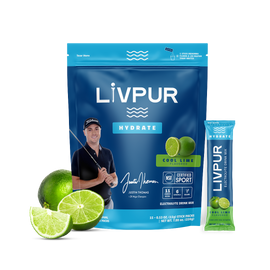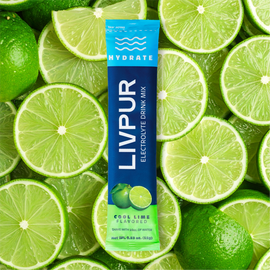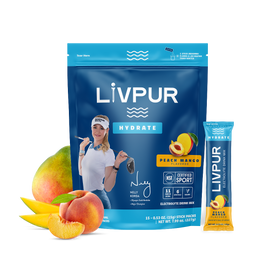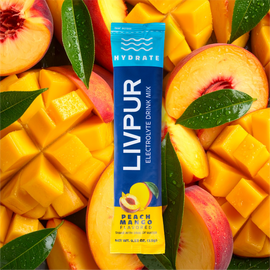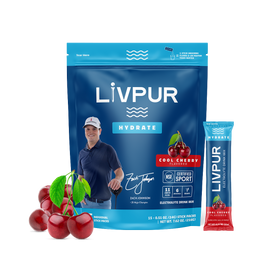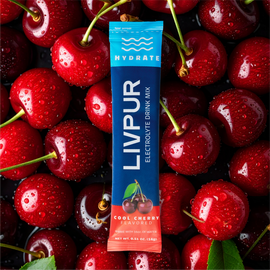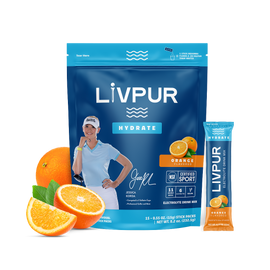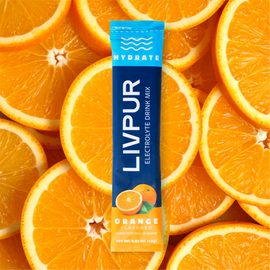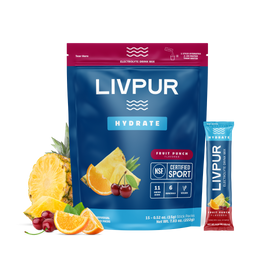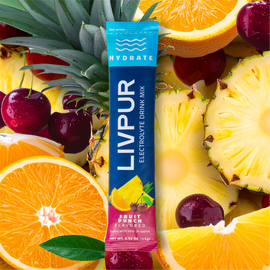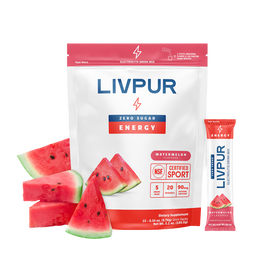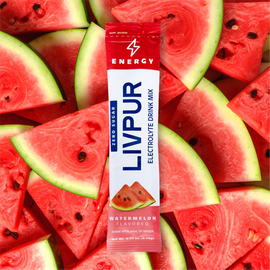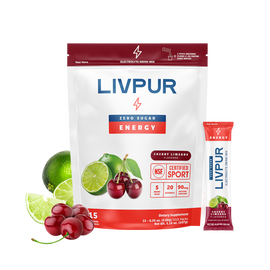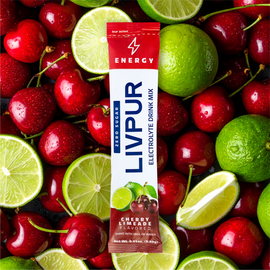September 25, 2023 • By Laura Onie • Blog
Everything You Need to Know About Dehydration
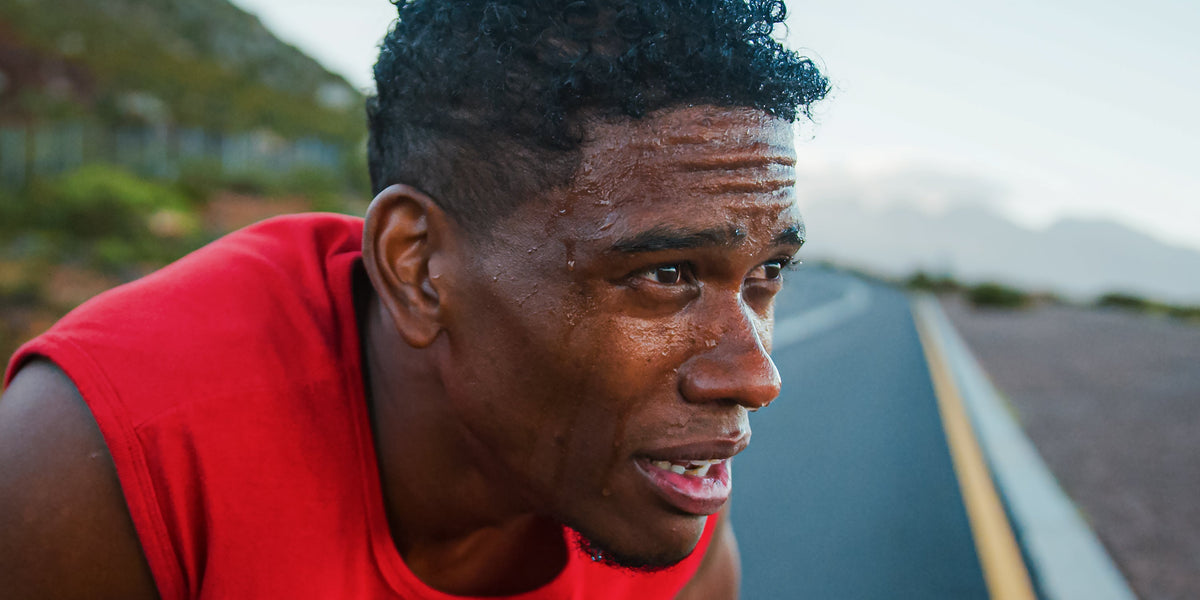
As the summer hits the roof, you start feeling drained and tiresome. You feel dizzy and disoriented the entire day. Chugging out all the right energy supplements and energizing your body with healthy food hardly makes a difference. Do you know why?
It's because your body is missing that essential element that every living creature needs---water! Water deprivation or dehydration causes your body to lose the essential electrolytes required for daily functioning. But how do you get dehydrated? sweating, urination, and diarrhea causes water loss and disrupts fluid levels.
Thankfully our body signals us, through thirst, when things are drying up inside. Not only that, we feel dizzy and disoriented as our body craves water.
If you’re still unsure why water is essential for us, read this article as we delve into the life-threatening consequences of dehydration. We will also discuss ways to prevent excess water loss and staying hydrated.
Understanding Dehydration
Dehydration is a condition where the body needs liquid to function correctly. It can lead to serious health issues, especially in children and older adults with medical problems or taking medications that increase their susceptibility to dehydration.
Even minor illnesses like lung or bladder infections can contribute to dehydration in older individuals. Hot weather is particularly conducive to dehydration, especially during intense exercise.
While mild to moderate dehydration can be managed with water, severe dehydration requires immediate attention.
People at risk include those with physical limitations due to illness or disabilities, sports enthusiasts sweating during marathons, and extreme age groups, such as children and seasoned professionals.
The Journal of Physiology reports that middle-aged and older individuals may be the most vulnerable to dehydration due to their bodies becoming less effective at detecting dehydration.
As we age, our bodies become less sensitive to dehydration, making it crucial for older individuals to take a hydration pit stop.
Who is at Risk from Dehydration?
Now, can dehydration bring on the heat? Sometimes, it can crank up your body temperature, and if you don't give it the TLC it deserves, your heart rate might go on a wild ride.
Dehydration doesn't discriminate. It's got a long list of potential victims, including:
- Babies and infants: These little tykes have low body weights and are as sensitive as a spider's web in a hurricane regarding fluid loss.
- Older folks might be in the dark about their dehydration, so they need a reminder to keep that hydration game strong.
- People with chronic illnesses, like diabetes or battling the booze: These warriors fight battles on multiple fronts, and dehydration can sneak up on them.
- Athletes sweat it out like there's no tomorrow during those marathon workouts.
So, there you have it, folks! Dehydration is no joke, and it can mess with anyone, anytime. My friends, the key is to keep your hydration radar on and stay thirsty!
Can Dehydration Cause High Blood Pressure?
Dehydration can significantly impact blood pressure, affecting the balance between fluid levels, parchedness, and other health issues.
Dehydration can lower blood pressure by reducing blood volume through arteries, similar to filling a swimming pool with a garden hose instead of a fire hose.
However, it can also harm organs by depriving them of oxygen and nutrients, leading to a shocker. Some researchers suggest a connection between dehydration and hypertension, but the research is still in its early stages.
Dehydration triggers the release of vasopressin, a hormone that tells the kidneys to hold onto water and squeeze blood arteries, increasing blood pressure.
While dehydration and high blood pressure may seem distant, more evidence is needed to establish a connection. Science is a curious beast, always seeking answers to these questions.
Dehydration Symptoms and Signs
Dehydration is a serious health issue that can lead to severe consequences, such as losing over 10% of your body weight in liquids.
However, extreme dehydration is rare and can usually be managed with a glass of water. The body signals when it's time to rehydrate, such as feeling parched, having a headache, or experiencing a dry mouth.
These signs indicate that you need to drink water, a natural response to dehydration. It's crucial to recognize signs of dehydration and take steps to prevent further damage.
Ultimately, rehydration is essential for maintaining good health.
Bad Breath Could Be a Symptom of Dehydration
But here's a quirky one for you – bad breath. Yep, when you're dehydrated, it's like a welcome party for bacteria in your mouth.
Saliva has these nifty antimicrobial properties, but when it's in short supply, bacteria can go wild, leading to some seriously uninviting breath. Ever had "morning breath"?
Well, it's a cousin of bad breath, and it happens because your mouth becomes a bacteria playground while you're sleeping.
So, if your breath could make a skunk faint and you've got a dry mouth, it's time to grab a glass of water.
Muscle Cramps Are a Symptom of Dehydration
Probably from Heat Illness Muscle cramps can also crash the party when dehydrated, especially if you're sweating buckets in the scorching sun. It's like your body's internal AC system is on the fritz.
Here's a nugget of wisdom – not all drinks are equal regarding rehydration. BMJ Open Sport and Exercise Medicine study found that sipping on an electrolyte-packed beverage can keep those muscle cramps at bay.
So, the next time you're in a muscle cramp showdown, go for the sports drink with those fancy electrolytes.
Headaches May Indicate That You Should Drink More Water
Let's not forget the trusty old headache. Even mild dehydration can give you a noggin throbber. Your brain is trying to get your attention by sending you a pain signal.
So, do yourself a favor – sip on some fluids throughout the day and guzzle down a glass of water if you've got a headache playing tricks on you.
Practical Tips on How to Deal with Dehydration
Dehydration is a common issue after intense physical activities like gym workouts, sauna sessions, or yoga. Sweating can lead to dehydration, diarrhea, fatigue, and dizziness.
It's essential to have an emergency kit for your body, such as a quick and furious dehydration treatment at home.
These tips can help your body recover from dehydration and promote overall health. Remember to prioritize your body's well-being and recovery.
Skim and Low-fat Milk
Milk is like a secret hydration weapon. It's loaded with those magical electrolytes that help balance your body's water levels. So, after an intense workout, consider rehydrating with skim or low-fat milk. It's like a superhero beverage for repairing those muscles and getting you back in the game.
However, if you're lactose intolerant, be prepared for a possible showdown with symptoms like diarrhea or vomiting. And if you've got a thing against specific milk proteins, maybe steer clear of the full-fat stuff.
Coffee and Tea
Now, this one's for all you caffeine enthusiasts out there. Does coffee have the power to dehydrate you? Well, it can act like a diuretics large doses, making you visit the bathroom more often.
But in moderation, caffeine can be your hydration buddy. A study showed no real difference in your body's ability to hydrate when comparing coffee to good old water. So, if you love your coffee or tea, enjoy. Spice it up with some lemongrass, cinnamon, nutmeg, or a splash of unsweetened almond milk for that extra kick.
Drink Plenty of Water
Okay, this one's a no-brainer, right? Water is your trusty sidekick when it's hotter than the Sahara or you've been dealing with a round of vomiting and diarrhea.
Here's the tricky part: no one-size-fits-all answer for how much you need. It depends on things like your body mass and how much you sweat. So, listen to your body's signals, and don't hesitate to sip more when in the heat.
Sports Drinks
Have you ever tried those fancy sports drinks? They're like the cool kids in the hydration gang. When it's scorching outside or putting in some serious sweat at the gym, these beverages can help you stay in the hydration game just as well as water.
But here's the catch – some of them come with calories and extra sugar that might not be your body's best friends. So, before you guzzle one down, do yourself a favor and check out the ingredients list. LivPur Nutrition Hydrate is a great rapid rehydration solution with clean ingredients including 11 essential amino acids and 5 key electrolytes.
So, there you have it, folks – a practical guide to keeping your body happy and hydrated, no matter what adventures you go to!
Hydration Electrolytes: Potassium and Magnesium
Now, let's talk about something your body adores – hydration! We're diving deep into electrolytes today, specifically potassium and magnesium. These guys are like the unsung heroes of hydration, and here's why they're so darn important:
Potassium is like the trusty sidekick to salt when keeping your body's fluid balance in check. Think of it as the yin to salt's yang. When you've enough potassium, your body knows how to hold onto its precious fluids like a pro. But when potassium goes MIA, your body starts ditching sodium like it's going out of style, and that's a recipe for dehydration disaster. So, don't let potassium play hide and seek with your body; keep it on your team.
Now, let's talk about magnesium. This little guy is a powerhouse when it comes to hydration, too. Like potassium, magnesium can vanish in the sweat when working up a storm. But here's the kicker – magnesium hangs out in many tasty places, like fruits, starchy veggies, and dark leafy greens. So, you can get your magnesium fix from some delicious eats. But hold on, there's a catch. You might need to up your game if you're on a low-carb diet, slashing calories, or avoiding foods bursting with these essential electrolytes. In that case, consider sprinkling in some supplements, but here's the golden rule: go for small, frequent doses instead of one big magnesium and potassium party.
The Bottom Line - How to Hydrate Yourself with LivPur Nutrition?
LivPur Hydrate is a hydration powder that boosts the body with electrolytes, amino acids, vitamins, and glucose. It keeps you hydrated and supports the immune system, muscle growth, and efficient water storage.
The body can absorb these nutrients 2-3 times faster than plain water. LivPur Hydrate is a budget friendly, nutrient-packed solution ideal for those tired of expensive sports drinks.
To stay hydrated and maintain electrolyte levels, working together with potassium, magnesium, and LivPur Hydrate is essential. Your body will thank you for it.
